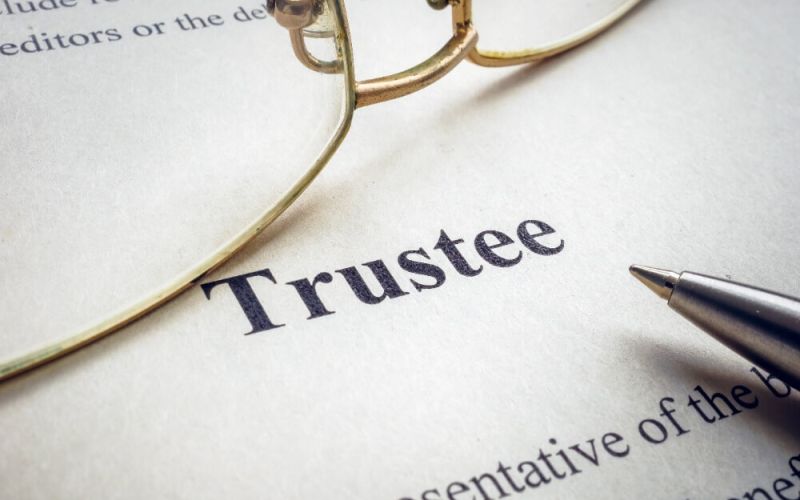
One of the most important decisions to make after someone dies is how to administer their probate estate. Many times family members rush to qualify as Executor without understanding the issues involved with being an executor.
Before you qualify as Executor you should determine the value (best estimate) of the probate assets (those assets solely titled in the decedent’s name and not assets that are owned jointly with right of survivorship, have a transfer/payable on death, beneficiary designation or transfer by operation of law) and the amount (estimate) of the debt owed by the decedent. You should then talk to an attorney specializing in estate administration matters.
Depending upon the value of the decedent’s assets you will have four options on how to probate the estate – if the probate assets are less than $25,000.00 you can qualify under the Small Asset Estate administration. There is no requirement to file an Inventory or Accounting so the process is usually inexpensive and quick. If the probate assets are less than $50,000.00 then you can use a Small Estate Affidavit. In order to use the Small Estate Affidavit, you must wait at least 60 days after the decedent’s date of death. The third option is if the probate estate exceeds $50,000.00 in which case you need to do a full-blown administration – a Commissioner of Accounts is appointed to oversee your role and you will have to file an Inventory and an Accounting, among other documents. The fourth option is to take no action regarding the probate estate.
If the Probate Estate is solvent (assets exceed debts) then someone should administer the probate estate. However, if the Probate Estate is insolvent (assets are less than the debts) then you should be very careful before you decide to qualify as Executor and to probate the estate. In fact, some people may not take any action at all if the probate estate is insolvent. The Executor of an insolvent estate can be held personally liable to the decedent’s creditors if the Executor pays the debts out of the statutory order.
Virginia Code Section 64.2-528 spells out the order the Executor must pay the debts of an insolvent estate. There are several provisions in the law that can also assist the Executor in making sure they are not personally liable for the decedent’s debts – a Debts and Demands hearing and a Motion for Show Cause Against Distribution. This will increase the time it takes to administer the estate but it also protects the Executor from personal liability.
Whether the Estate is Solvent or Insolvent the surviving spouse and/or dependent children of the decedent, if any, should consider filing the Family Allowance, Exempt Property and Homestead Allowance ($64,000) since they have priority over all other payments except the cost and expenses of administration.
If you are named as an Executor then I recommend you contact the attorneys at Midgett Preti Olansen PC, so we can advise you on the course of action for administering the decedent’s estate and avoiding personal liability as executor.

Written By John T. Midgett
John T. Midgett is a Shareholder in the Law Firm of Midgett Preti Olansen. His practice is concentrated in the related areas of estate planning, administration and taxation, estate and trust litigation, and family business planning.
Latest Resource Articles
-

What is the Difference Between Trustee, Executor, and Pow…
Written by Nathan R. Olansen on January 10, 2024.Key Takeaways: The overarching goal of any trustee, executor, or power of attorney is to wo…Read more -

Reasons Why You Should Hire a Professional Executor
Written by Nathan R. Olansen on December 21, 2023.Key takeaways: A fiduciary is a person or entity appointed to handle financial and legal ma…Read more -

Why Set Up a Trust for Your Grandchildren?
Written by Alison R. Zizzo on December 11, 2023.Creating a trust for a grandchild requires not only an understanding of one’s financial goal…Read more -

Understanding The Benefits of a Bloodline Trust
Written by Alison R. Zizzo on November 10, 2023.Key Takeaways A bloodline trust is an estate planning tool designed to protect assets for d…Read more -

Are Powers of Attorney Responsible for Medical Bills?
Written by Nathan R. Olansen on September 22, 2023.According to a Genworth’s 2021 Cost of Care Survey, the reported average cost of assisted li…Read more -

Top Reasons for Disputing a Trust in Virginia
Written by Nathan R. Olansen on September 1, 2023.A trust is a valuable tool for saving your loved ones from the probate process and reducing …Read more -

Are You Responsible for Your Deceased Spouse’s Medical Bi…
Written by Ann H. Larkin on August 29, 2023.After the death of a spouse, the surviving spouse will inevitably receive bills from hospita…Read more -

Know the Signs of an Employee Retention Credit Scam
Written by Nathan R. Olansen on August 2, 2023.If it sounds too good to be true, it probably is. The IRS has sounded the alarm repeatedly r…Read more -

Can a Trustee Sue a Beneficiary?
Written by Nathan R. Olansen on August 1, 2023.When you are named the trustee of a trust, it comes with responsibilities you need to be pre…Read more
"*" indicates required fields

© 2024 Midgett Preti Olansen





